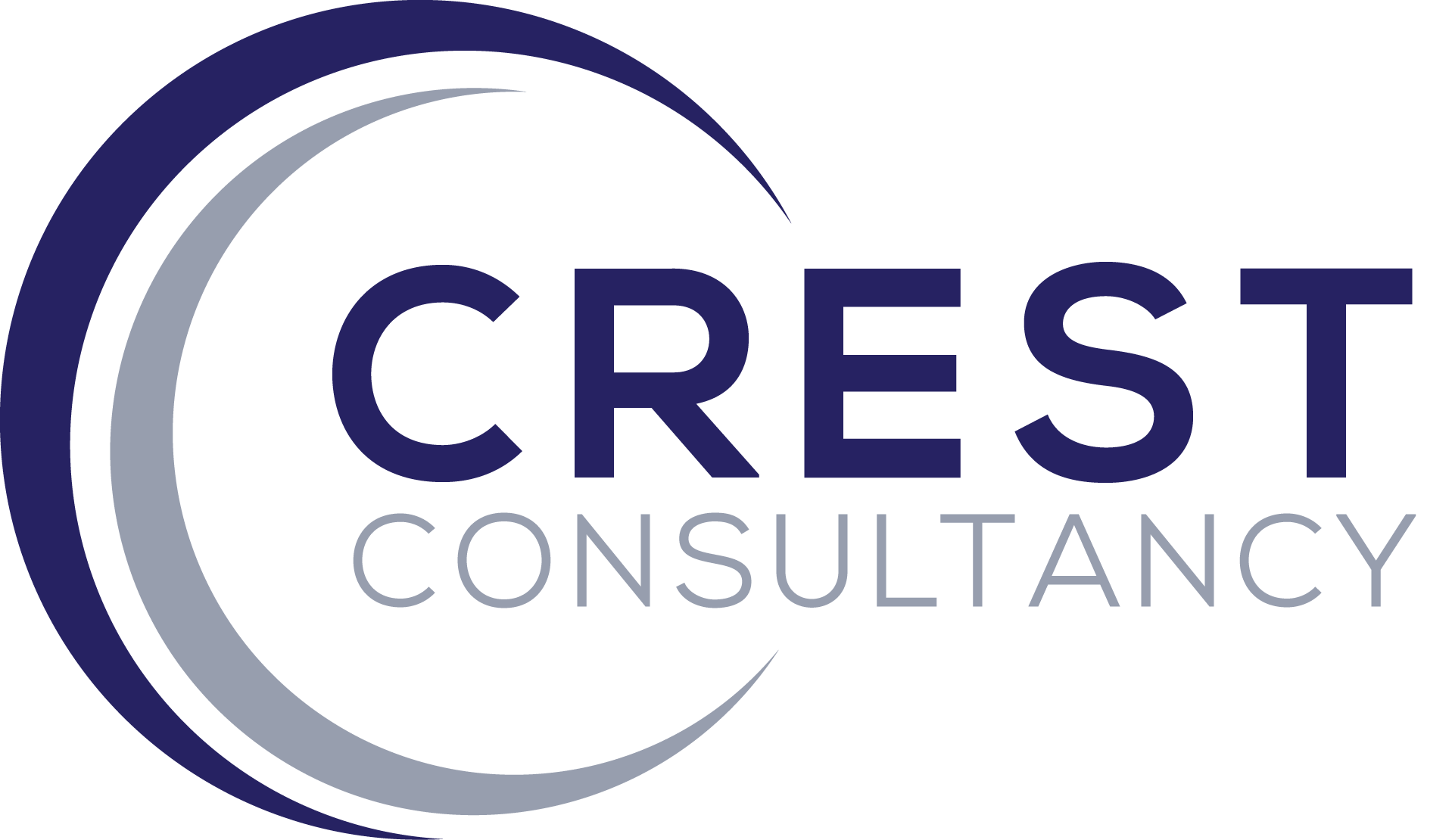» Start Up Workshops
” Crest not only gives your business a resource in knowledge, but power! “

Business Workshops
At some point most businesses will need a business plan. Our business plan workshop is aimed at helping you towards the preparation of your business plan, which could be for your startup ideas or an established business.
Our one day business plan preparation workshop will outline how to prepare and write a business plan which could be to secure investment, apply for funding such as a bank or startup loan for your identified business opportunity.
Click below to view details of our workshops
The Entrepreneurial Mindset
The aim of this workshop is to enable delegates to develop the mindset and skills that a successful entrepreneur needs for business.
Workshop introduction
Many people dream of running a successful business. Determination, vision, adaptability and a wide variety of skills are required to make a business successful.
This workshop series will enable delegates to investigate the qualities and characteristics of successful entrepreneurs, whilst developing the attributes needed to plan and run a business.
The development of mindset and skills will, in part, depend on understanding that limits and constraints can be overcome with planning and determination. This reassessment of previously learned concepts may take time, and therefore this workshop should be incorporated through the programme of study.
This workshop focuses on the attributes of successful entrepreneurs, and delegates are encouraged to consider these attributes in terms of their own development. The workshop focuses on the ability and capacity all delegates have to develop into successful entrepreneurs.
Creating a Vision for your Business Plan
The aim of this workshop is for delegates to understand how business ideas are created and gain the skills and confidence to generate their own.
Workshop introduction
Successful entrepreneurs develop ideas and turn these ideas into a product or service to which they can make a commitment. They do this by having a vision of the future of the product or service and by making this vision a reality.
In the first part of this workshop delegates will explore successful and innovative business ideas. They will learn about how some ideas have been based on identifying new customer needs, whilst others have provided innovative means of satisfying established needs. Delegates will go on to investigate how some successful entrepreneurs have developed their ideas and launched innovative businesses.
Next, delegates will choose an idea for implementation and explain their reasons for rejecting other ideas; they will select which of their ideas they wish to work with as the basis for a fully-developed business plan.
Delegates will explore sources of advice and guidance, and networks that can support them in business and will use opportunities to gather information to support their business planning development
The Business Environment
The aim of this workshop is to enable delegates to develop the skills and knowledge needed to research the external business environment and their own business skills needs, and consider how these factors may affect their own business.
Workshop introduction
The business environment is continually changing and entrepreneurs must constantly monitor changes and adapt their business plans to ensure that their businesses succeed. No business can survive unless it fits into the environment in which it operates.
In this workshop delegates will learn about the impact changes in the external environment have on a selected microbusiness or social enterprise. The changes studied will include a range of current social, environmental and technological issues.
Delegates will go on to consider what an entrepreneur needs to learn before employing others. The most important regulations about employment status, health and safety, minimum wages, working hours and equal opportunities are covered.
Finally, delegates will learn about how to lead their business through the development of an organisation structure and the use of a range of leadership styles.
A practical approach should be adopted to equip the learner with the knowledge and skills needed to find and select information needed for their own business.
Researching your Market
The aim of this workshop is to enable delegates to undertake market research to support the development of a microbusiness and to interpret the results.
Workshop introduction
Workshop introduction
Any business needs to understand its customers and the market in which it operates. This is achieved through researching the market and analysing the findings as objectively as possible. Market research can be used to define or refine the business USPs and to gain insight into customer views on a variety of aspects of the business. In this workshop delegates should use market research to help refine their business ideas.
Delegates will learn how to plan cost-effective market research to meet the needs of a micro start-up business or social enterprise. They will study different methods of primary research and how to use secondary research.
Delegates will go on to consider different methods of analysing their findings using both numerical techniques and specialist marketing techniques, as appropriate.
Finally, delegates will learn how to draw conclusions from their analysis and integrate these decisions into a business plan.
The overall emphasis is on a practical approach suitable for a micro start-up business.
The Market Plan
This workshop aims to give delegates the understanding and skills needed to develop a marketing and promotion plan for their own micro start-up business or social enterprise.
Workshop introduction
The marketing plan is one of the most important parts of a business plan because it directly communicates the nature of the intended business and the manner in which that business will be able to succeed.
In this workshop, delegates will learn about the fundamental marketing concepts that any entrepreneur needs to master.
Delegates will then go on to apply this theory to their own business idea and learn how to develop a full marketing plan for a micro start-up business or social enterprise. This will include defining their target market and the benefits of their product or service from the all-important viewpoint of the prospective customer.
Delegates will also use the results of their marketing research to develop their marketing tactics using the marketing mix.
They then develop a practical, costed promotion plan for a micro start-up business or a social enterprise.
Financial Modelling and Forecasting
The aim of this workshop is to provide delegates with the essential knowledge and skills to enable them to develop a robust financial model to fit with the aims of their microbusiness.
Workshop introduction
If there is no money there is no business. Anyone setting up a business must plan to both finance the startup and manage all revenue and expenditure on an ongoing basis. In addition, a business must maintain satisfactory records of all financial transactions.
Cash flow is a central feature of this workshop. The importance of cash flow is often underestimated, yet many businesses fail simply because of cash-flow problems.
This workshop covers the fundamental financial knowledge and skills which an entrepreneur needs before starting a business. Firstly, delegates will learn essential financial terminology so that they can use business planning software and interpret the results. They will then go on to learn about different sources of finance and select the most appropriate for their business plan. They will learn how changes to pricing, sales levels or costs impact upon the financial performance of a microbusiness.
Next, delegates will learn how to develop a robust financial model which is supported by estimated business finances and outputs from relevant business planning software. Finally, delegates will produce a costed supply chain looking at the resources required for their microbusiness.
The overall approach is on a practical ‘need to know’ basis and the outcome of this workshop will contribute to delegates’ own fully-developed business plans.
Leadership and Teamwork
The aim of this workshop is to enable delegates to develop the attributes that a successful entrepreneur needs when working in or leading a team.
Workshop introduction
In this workshop, delegates will gain an awareness that for whatever activities they undertake to develop their business idea and plan, these will usually involve working with others, often as part of a team. An effective team depends on leadership, and in this workshop delegates will have the opportunities to work in a team both as a member and as a leader. Delegates will develop an understanding of team roles and how teams work together, as well as an understanding of conflict within teams.
Delegates will practise teamworking skills, as well as learning what qualities are needed to motivate and inspire others to perform well. They will assess their contribution both as a team worker and a leader.
Preparing and Pitching a Business Plan
The aim of this workshop is to enable delegates to draw together all aspects of a business plan and to pitch the plan in a professional manner and for an identified purpose.
Workshop introduction
Setting up a microbusiness is complicated and the risk of making mistakes is high. By preparing for a plan, reflecting on it and seeking the opinions of experienced outsiders, a prospective entrepreneur can eliminate many mistakes during the planning stage.
A business plan is often presented to investors and others who do not have much time to scrutinise a substantial document, but at the same time need access to important information.
This workshop therefore enables delegates to develop a concise plan which contains the important and relevant information needed by a potential investor. Delegates should be conscious of the difference between a presented business plan, and the substantial plan that will underpin the operation of their business and which could be drawn from evidence produced for the first six workshops in this qualification.
In their presented plan, delegates will focus on the way the plan is presented, as well as its content, in order to enable them to learn of the need for maximum effectiveness of presentation.
Delegates will learn how to design and deliver a convincing and professional oral/visual presentation of their business plan which caters to the needs and requirements of their audience and draws on a range of presentation skills. Part of this process will be to accept feedback from others, using this in a review of the plan.
Enterprise in the Workplace
The aim of this workshop is to enable delegates to develop skills and knowledge to be entrepreneurial. Delegates will do this by undertaking specific projects which involve working on real business problems in host organisations.
Workshop introduction
Running your own business can be an exciting yet daunting challenge. Exciting, as the drive to succeed and personal dreams are fulfilled; daunting, as unknown challenges are faced. It is important, therefore, for delegates to have the opportunities to experience typical day-to-day entrepreneurial activities first hand and to be able to undertake specific projects or solve real business problems. This workshop aims to develop knowledge and understanding of how businesses succeed and the skills and abilities entrepreneurs draw on when faced with everyday issues or problems. This will be achieved through delegates undertaking enterprise work placements to build their confidence and skills.
Delegates will undertake a minimum of two work experience placements working with two host enterprise organisations in order to broaden their experiences and apply their skills to particular projects or real business problems.
This experience will enable delegates to agree and set goals and to monitor and review the objectives through the process of identifying and developing ideas for the project or problem. Each project or problem, to be agreed with the host organisation and tutor, will focus on the production of an action plan with aims, objectives and targets that supports the development of the problem-solving process. Delegates will monitor their progress against the agreed action plan targets, and review the effectiveness of their own performance through recording their experiences in a learning log or diary.
Being able to reflect on and evaluate their performance and progress, and learn from challenges other successful entrepreneurs face, will help delegates understand the importance of planning and monitoring goals and the skills developed whilst on the placement.
Planning an Enterprise Activity
The aim of this workshop is to give delegates the skills and knowledge to plan an enterprise activity. Delegates will choose an enterprise activity, create coherent plans and assess the risks involved in implementing their plans.
Workshop introduction
Enterprise activities offer opportunities to learn and develop the entrepreneurial characteristics of tenacity, independence, innovation, imagination, risk-taking, creativity, intuition and leadership. In this workshop, delegates will have a broad introduction to prepare to undertake an enterprise activity. The workshop will help delegates to find out and explain details of an enterprise idea, including understanding how to choose a viable enterprise activity, how to develop a product or service according to an implementation plan and how to assess some of the potential risks involved.
Running an Enterprise Activity
The aim of this workshop is to enable delegates to use their skills and knowledge to run an enterprise activity. Delegates will create plans, use their customer skills, handle money and keep basic financial records. Delegates will evaluate the activity and their personal involvement.
Workshop introduction
Enterprise activities offer opportunities to learn and develop the entrepreneurial characteristics of tenacity, independence, innovation, imagination, risk-taking, creativity, intuition and leadership. In this workshop, delegates will have the opportunities to carry out an enterprise activity. Delegates will develop an understanding of the importance of having a strategy for an enterprise activity, dealing with money, sales techniques and customers correctly.
They will also develop the ability to evaluate the success of their activity and review their personal involvement.
Producing a Product
The aim of this workshop is to give delegates the skills and knowledge to produce their own item or product safely and to a desired standard. Delegates will consider the skills needed and where to gain these skills as well as being able to assess the quality of the finished product.
Workshop introduction
Having practical experience in producing a product or item will equip delegates with a variety of skills useful for employability. In this workshop delegates will have the opportunities to identify these skills and understand how these skills will be acquired. Delegates will learn how to plan the manufacture of an appropriate product or item and will gain practical experience of making a product or item safely, to a desired standard of quality. They will also evaluate how the product or item was made, putting forward suggestions for changes to their plan for future manufacture.
Developing Personal Skills for Leadership
The aim of this workshop is to give delegates the opportunities to develop their personal leadership skills. The workshop covers the main features of leadership and practical leadership.
Workshop introduction
The ability to understand and use effective personal leadership skills is often a desirable aspect of employability. Whether using these skills formally as a team leader or supervisor, or informally to lead a small group of people or convey instructions to others, it is important that delegates develop and reflect upon their personal leadership abilities. In this workshop, delegates will develop an understanding of the main features of leadership and how to prepare to demonstrate their leadership skills in an appropriate leadership activity.
Communicating Solutions to Others
This workshop gives delegates the opportunities to deal with problems by considering if a solution is needed, how to solve the problem and how to communicate the solution to others. Delegates will also assess how successfully they communicated with others.
Workshop introduction
Being able to solve problems and share solutions with others is a valuable skill for employability, learning and for .life in general. In this workshop delegates will find out why a problem requires a solution, how to communicate possible solutions to others in an appropriate way and how to deal with responses to what has been presented.
Additionally, delegates will review the effectiveness of their performance in presenting a solution to others and suggest possible areas for improvement.
Effectiveness at Work
In this workshop delegates will gain the understanding and skills necessary to work effectively to achieve personal, team and organisational goals.
Workshop introduction
In any workplace, it is important to work effectively to achieve personal, team and organisational goals. Understanding what makes an effective employee, and being able to demonstrate these skills, are essential aspects of employability.
This workshop focuses on understanding the importance of positive attitudes and behaviours both within and outside of the workplace. Delegates will have to demonstrate that they understand and can demonstrate appropriate behaviours in the workplace. They also need to show that they are able to represent their workplace appropriately with customers or others outside of the organisation.
Delegates will review the strengths and weaknesses of their conduct and suggest improvements to their performance.
Working in a Team
This workshop gives delegates the skills and knowledge to recognise the strengths and weaknesses of team members, work as part of a team and assess the effectiveness of the team.
Workshop introduction
Team working skills are extremely valuable in the workplace and are also transferable to other areas of life. In this workshop, delegates will consider the advantages of teamwork and why team members need varied skills and strengths to complete tasks successfully.
Delegates will gain knowledge of how to work positively as a team member by contributing to a team task. Additionally, delegates will develop understanding how to reflect on their own and the team’s effectiveness in completing the task.
Delegates will consider their individual contribution to the team’s performance and areas where the team could improve their team working skills.
Featured News Items
Taking Entrepreneurship To New Levels Across The UK
Taking an entrepreneurial outlook to weather the perfect storm After such a difficult nine months...
ESFA Refuses To Rule Out Funding Clawback for ‘Under Delivery’
Billy Camden Controversial plans to clawback some of this year’s unspent adult education budget...
AoC Calls For Adult Funding Boost Ahead of Spending Review
Billy Camden Funding rates for adult learners must be raised to the same level as 16 to...



